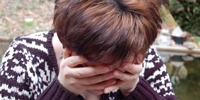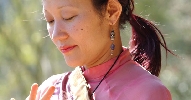|
|
 Acne (1,500) Acne (1,500)
 Addictions (1,500) Addictions (1,500)
 Advice (1,500) Advice (1,500)
 Allergies (1,092) Allergies (1,092)
 Alternative Medicine (1,500) Alternative Medicine (1,500)
 Anti Aging (1,500) Anti Aging (1,500)
 Breakup (1,500) Breakup (1,500)
 Cancer (1,499) Cancer (1,499)
 Dental Care (1,500) Dental Care (1,500)
 Disabilities (1,500) Disabilities (1,500)
 Divorce (1,500) Divorce (1,500)
 Elderly Care (1,498) Elderly Care (1,498)
 Goal Setting (1,500) Goal Setting (1,500)
 Hair Loss (1,500) Hair Loss (1,500)
 Health and Safety (1,497) Health and Safety (1,497)
 Hearing (1,500) Hearing (1,500)
 Law of Attraction (1,499) Law of Attraction (1,499)
 Marriage (1,500) Marriage (1,500)
 Medicine (1,497) Medicine (1,497)
 Meditation (1,499) Meditation (1,499)
 Men's Health (1,500) Men's Health (1,500)
 Mental Health (1,500) Mental Health (1,500)
 Motivational (1,500) Motivational (1,500)
 Nutrition (1,495) Nutrition (1,495)
 Personal Injury (1,499) Personal Injury (1,499)
 Plastic Surgeries (1,500) Plastic Surgeries (1,500)
 Pregnancy (1,496) Pregnancy (1,496)
 Psychology (1,500) Psychology (1,500)
 Public Speaking (1,500) Public Speaking (1,500)
 Quit Smoking (1,500) Quit Smoking (1,500)
 Religion (1,499) Religion (1,499)
 Self Help (1,500) Self Help (1,500)
 Skin Care (1,500) Skin Care (1,500)
 Sleep (1,500) Sleep (1,500)
 Stress Management (1,500) Stress Management (1,500)
 Teenagers (1,492) Teenagers (1,492)
 Time Management (1,500) Time Management (1,500)
 Weddings (1,500) Weddings (1,500)
 Wellness (1,500) Wellness (1,500)
 Women's Health (1,500) Women's Health (1,500)
 Women's Issues (1,500) Women's Issues (1,500)
|
Herpes is one of the most common sexually transmitted diseases in America, so it is important for us to have an understanding of the condition so that we can take the proper measures to prevent it, or treat it if we already have contracted it.
There are two types of herpes, caused by two different herpes simplex viruses: HSV-1 and HSV-2. Both types of herpes can infect either the oral or genital area, or sometimes, both. The infection causes signs and symptoms that may come and go. There is no cure for herpes, but the symptoms can be treated and relieved with certain medications and treatments.
When the herpes infection is on or around the mouth, it is called oral herpes. Oral herpes causes sores on the mouth or lips called "fever blisters" or "cold sores." Oral herpes is usually caused by the type 1 of the virus.
When a herpes infection is on or near the genitals, it is called genital herpes. Genital herpes is usually caused by type 2 of the herpes virus. However, in recent years, it is more and more common to find occurrences of type 1 in the genitals, as oral sex is becoming a more popular practice.
You get genital herpes through direct skin-to-skin contact, usually during vaginal or anal sex. The herpes virus is most contagious when herpes sores are open, but herpes can be spread even when there are no sores present and no signs of an infection. If someone with oral herpes gives oral sex to his or her partner, the partner can develop genital herpes. In this way, some cases of genital herpes are caused by HSV-1, instead of the usual transmission by genital-to-genital contact.
Contrary to some myths, the only way to spread genital herpes is through skin contact. You can't get genital herpes from swimming pools, towels or toilet seats.
The first outbreak's symptoms are usually more severe than subsequent outbreaks of herpes. When the initial outbreak is over, the herpes virus becomes inactive and does not cause symptoms. This period is called dormant infection. At any time after this, the virus can reactivate and cause sores again.
Once you have contracted herpes, you have it for life, and may experience repeated flare-ups called a "recurrences" or "outbreaks." Each person has his or her own unique pattern of recurrences. Genital herpes caused by type 2 of the virus is much more likely to cause frequent recurrences than genital herpes caused by type 1. The frequency, duration and severity of outbreaks can be greatly reduced with herbal treatments.
During genital herpes outbreaks, people may experience the following:
*discomfortor pain around the genitals, legs or buttocks
*swollenlymph nodes in the groin area
*burningor itching while urinating
*difficulty urinatingor constipation
* fever, chills, headaches, body aches or otherflu-like symptoms
Keep in mind though, for many individuals, no symptoms are experienced. So, if you think you've been exposed to the herpes virus, the best way to find out for sure is to be tested.
Even though a person may not know the exact cause of an outbreak, he or she may sense that an outbreak is coming. These signs can include tingling, itching, numbness or tenderness where the sores will appear. There can be pain near the buttocks, back of legs or lower back. These may start a few hours to a day before the sores actually appear on the skin.
Sores can re-appear anywhere on or near the genitals, often at the same place as they initially appeared.
Luckily, there have been many advancements to assist individuals who suffer from genital herpes, especially in the way of herbal treatments. There are many compounds found in nature that aid in the reduction of herpes outbreaks, frequency and duration. Not affiliated with big pharmaceutical companies, thesenatural remediesare typically affordable and easily accessible.
|
|
|



